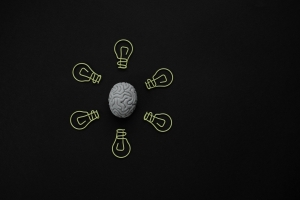Alcohol and women's health
Abril 11, 2023In addition to alcoholism, binge drinking among women may increase the risk of other health problems.
Are the brains of men and women differently affected by alcohol and stress?
A new study looks at how the brains of men and women diagnosed with alcohol use disorder respond to stressful stimuli and triggers for alcohol consumption. The differences found are surprising!
Stress is an aggravating factor for alcohol consumption and significantly affects mental health. In this sense, drinking to deal with negative emotions should be considered a warning sign, as it increases the chances of problems with alcohol. In cases where alcohol is already a problem, any stress or trigger, such as seeing images of people drinking, can increase the risk of binge drinking.
Seeking to understand how biological sex can affect these aspects, researchers at Yale University carried out a survey of 77 participants (46 men and 31 women) diagnosed with disorders associated with alcohol use. These participants were asked to view 3 types of images while “mapping” of the brain activity of these individuals was carried out (a technique called “functional magnetic resonance imaging”). After this mapping, patients were monitored for eight weeks regarding their daily alcohol consumption.
The main objective of the research was to evaluate how different “maps” of brain activity were associated with days of heavy drinking over the following eight weeks. And indeed, the researchers found some significant differences: for example, among women, a lower level of brain activation in a region called the anterior cingulate cortex was found to be correlated with more days of heavy drinking. This finding was not observed in males, who, in turn, had a higher level of activation in brain regions known as the hypothalamus and hippocampus.
All of these regions are important components of the brain reward system, and are linked to drug addiction. Such results lead researchers to point out the possibility that alcohol consumption among female and male people occurs due to the activation of different regions of the reward system, highlighting the need to search for different therapeutic strategies according to the sex of the patient. Although more studies are needed to reach a more solid conclusion on the subject, these results contribute to a general trend in the health sector to provide more individualized therapeutic care, taking into account not only disorders, but various characteristics of the individual, such as gender and age.
References:
Radoman, M., Fogelman, N., Lacadie, C., Seo, D., & Sinha, R. (2024). Neural correlates of stress and alcohol cue-induced alcohol craving and of future heavy drinking: evidence of sex differences. American journal of psychiatry, 181(5), 412-422.
Estrogen and Alcohol Consumption in Women: Hormonal Interactions and Health Risks
Estrogen plays a key role in the neurobiological responses to alcohol in women. Recent evidence shows that hormonal fluctuations throughout the menstrual cycle and across a woman’s lifespan can influence alcohol sensitivity, drinking patterns, and the associated health risks.
Estrogen and the Brain’s Reward System
Preclinical and clinical studies indicate that estrogen amplifies dopamine effects in brain areas associated with the reward system, such as the striatum and prefrontal cortex. This may increase women's vulnerability to developing alcohol use disorders, especially during life phases with elevated estrogen levels—such as ovulation, pregnancy, or during hormone therapy.¹
1. Effect of Alcohol Use on Estradiol
Estradiol is a steroid hormone and a primary form of estrogen, produced mainly in the ovaries in women and in smaller amounts in the testes in men. Studies suggest that alcohol consumption can raise estradiol levels in women—a phenomenon observed in both reproductive-age and postmenopausal women.
Some research shows that women who consume one or more alcoholic drinks per day have higher estradiol levels than those who drink less, particularly when hormone levels are measured during the luteal phase of the menstrual cycle.² ³ Conversely, women with alcohol use disorder (AUD) who are undergoing treatment or are in early abstinence often present lower estradiol levels compared to women without AUD.⁴
2. Impact of Estradiol on Alcohol Use
High estradiol levels appear to increase women's vulnerability to alcohol use. The hormone affects brain regions involved in reward processing, such as the striatum and the nucleus accumbens.
A study by Martel et al. (2017), involving 22 reproductive-age women, found that higher estradiol levels were associated with greater alcohol consumption and more binge drinking episodes. This association was strongest when estradiol levels were high and progesterone levels were low—a hormonal pattern typical of the ovulatory phase of the menstrual cycle.⁵
Conclusion and Research Gaps
While current evidence highlights a significant interaction between estradiol levels and alcohol use in women, the underlying physiological mechanisms remain incompletely understood. Experimental and longitudinal studies are still needed to clarify how estradiol influences the neurobiology of reward and vulnerability to alcohol use, as well as how alcohol affects endocrine function across different stages of a woman’s life.
References:
- Handy, A. B., Greenfield, S. F., & Payne, L. A. (2025). Estrogen and alcohol use in women: a targeted literature review. Archives of women's mental health, 28(1), 81–93. https://doi.org/10.1007/s00737-024-01483-9biobehavioral reviews, 128, 648–660. https://doi.org/10.1016/j.neubiorev.2021.07.010
- Lucero J, Harlow BL, Barbieri RL, Sluss P, Cramer DW (2001) Early follicular phase hormone levels in relation to patterns of alcohol, tobacco, and coffee use. Fertil Steril 76(4):723–729. https://doi. org/10.1016/s0015-0282(01)02005-2
- Schliep KC, Zarek SM, Schisterman EF, Wactawski-Wende J, Trev- isan M, Sjaarda LA, Perkins NJ, Mumford SL (2015) Alcohol intake, reproductive hormones, and menstrual cycle function: a prospective cohort study. Am J Clin Nutr 102(4):933–942. https:// doi.org/10.3945/ajcn.114.102160
- Mühle C, Barry B, Weinland C, Kornhuber J, Lenz B (2019) Estrogen receptor 1 gene variants and estradiol activities in alcohol depen- dence. Prog Neuropsychopharmacol Biol Psychiatry 92:301–307. https://doi.org/10.1016/j.pnpbp.2019.01.008
- Martel MM, Eisenlohr-Moul T, Roberts B (2017) Interactive effects of ovarian steroid hormones on alcohol use and binge drinking across the menstrual cycle. J Abnorm Psychol 126(8):1104–1113. https://doi.org/10.1037/abn0000304
Estrogen and Alcohol: Can Hormones Influence Alcohol Consumption in Women?
Research suggests that estrogen may influence excessive alcohol consumption among women. A study published in Nature Communications shows how this hormone affects brain pathways in female mice related to motivation and stress, pointing to a possible biological mechanism that could increase female vulnerability to alcohol.
Excessive alcohol consumption among women has been increasing in recent years. And although abusive alcohol use causes serious health damage to anyone, alcohol impacts women’s health significantly due to biological and physiological differences compared to men.
Some studies have mentioned that hormonal factors, such as estrogen, can drive alcohol-related behaviors.¹–³ Based on this, a study published in Nature Communications⁴ investigated how estrogen might regulate alcohol consumption behavior in female mice and which brain and molecular pathways are involved in this process.
To investigate the role of estrogen in excessive alcohol consumption in females, researchers observed alcohol intake throughout the estrous cycle (similar to the menstrual cycle in humans) and applied the Drinking in the Dark (DID) protocol, which simulates binge drinking episodes. Additionally, they performed hormonal manipulations by administering estrogen and selective blockers of membrane-associated estrogen receptor alpha (ERα), responsible for rapid, non-genomic hormonal action. Finally, they used electrophysiological techniques to assess the activity of CRF neurons (corticotropin-releasing factor – a peptide involved in the stress response) in the bed nucleus of the stria terminalis (BNST), aiming to identify how this hormonal pathway influences neuronal excitation and alcohol-seeking behavior.
The study results demonstrated that estrogen exerts a direct and significant influence on excessive alcohol consumption behavior in female mice. It was observed that during the phases of the estrous cycle when estrogen levels were highest, females showed a marked increase in ethanol intake, suggesting a relationship between hormonal peaks and vulnerability to compulsive consumption. When estrogen was administered exogenously, consumption also increased, confirming this association. Conversely, blocking ERα estrogen receptors reduced this behavior. Moreover, estrogen increased the activity of CRF neurons in the BNST, a brain region linked to stress and motivation, indicating that this hormonal pathway directly contributes to alcohol-seeking behavior.
Can We Apply These Findings to Women?
Although the findings of this study in mice offer important clues about how estrogen may influence excessive alcohol consumption in females, caution is needed when applying these conclusions directly to women.
Animal models are essential for understanding biological mechanisms but do not reflect the full complexity of human experiences, which involve social, emotional, and cultural factors, especially regarding alcohol use. Additionally, the study analyzed only the acute effects of estrogen in a specific brain region, leaving open how this hormone may act in contexts of chronic use or in association with other human variables.
Still, the results suggest a possible biological mechanism that may help explain women’s greater vulnerability to the harmful effects of alcohol. Therefore, these findings reinforce the need for further research with women that investigates the role of sex hormones in motivation for alcohol consumption, aiding the development of more effective and gender-sensitive prevention and treatment strategies.
References:
- Johnson CS, Mermelstein PG. The interaction of membrane estradiol receptors and metabotropic glutamate receptors in adaptive and maladaptive estradiol-mediated motivated behaviors in females. 2022 Jan 1;33–91.
- Torres VC, Feng B, Yang X, Patel N, Schaul S, Ibrahimi L, et al. Estrogen signaling in the dorsal raphe regulates binge-like drinking in mice. Translational Psychiatry. 2024 Feb 27;14(1).
- Chen H, Lu Y, Xiong R, Rosales CI, Coles C, Hamada K, et al. Effect of a brain‐penetrant selective estrogen receptor degrader (SERD) on binge drinking in female mice. Alcoholism/Alcoholism, clinical and experimental research. 2022 May 29;46(7):1313–20.
- Zallar LJ, Rivera-Irizarry JK, Hamor PU, Pigulevskiy I, Rico Rozo AS, Mehanna H, et al. Rapid nongenomic estrogen signaling controls alcohol drinking behavior in mice. Nature Communications [Internet]. 2024 Dec 30 [cited 2025 Feb 5];15(1). Available from: https://www.nature.com/articles/s41467-024-54737-6





